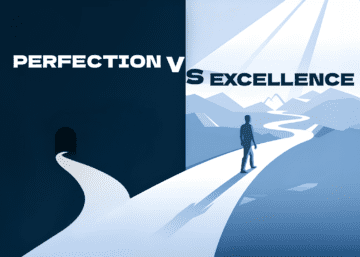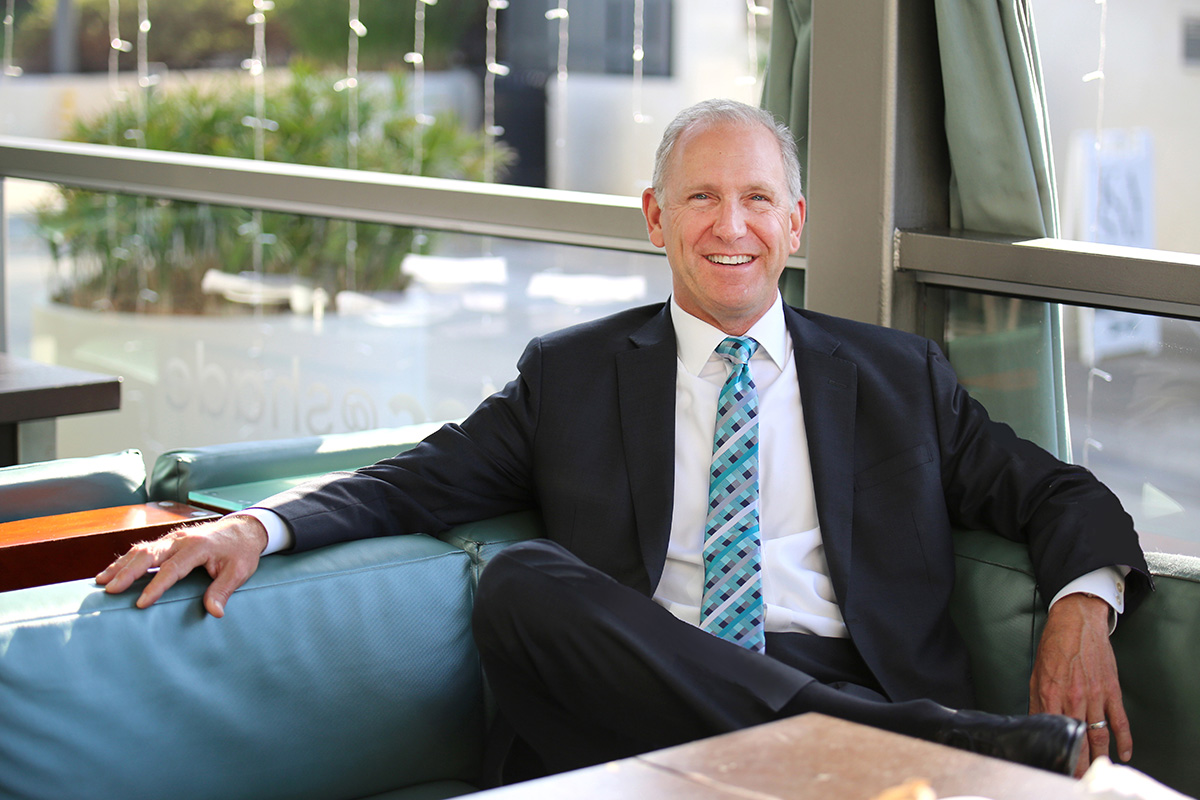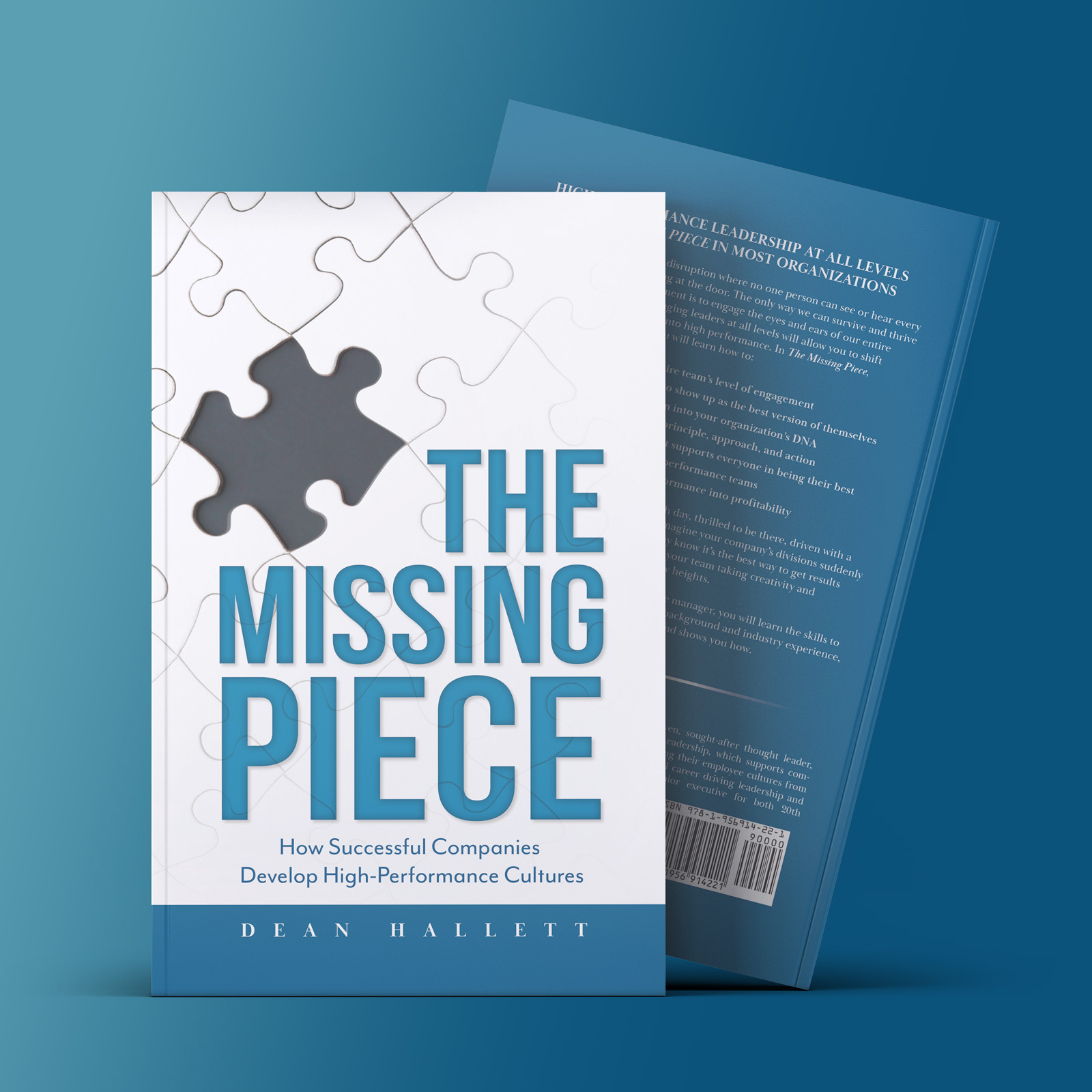We received numerous requests from people in our network to follow up with more detail on last week’s article on personal leadership development plans during COVID-19. We have been asked to provide examples of the most effective leadership skills that a student could STOP-LOOK- and CHOOSE to develop in themselves. What follows here are what we consider the three essential middle management skills.
There are so many positive leadership qualities and attributes that could make the list. For purposes of this article, Hallett Leadership highlights three — self-awareness, authenticity, and vulnerability — which may appear to belong more in the class of human qualities than leadership skills. While they are essential qualities, they’re also skills that can be learned and developed by anyone with the desire, along with a few others. These skills are as valuable, if not more so, than any mastery of software and technical domains.
Challenges of Middle-Level Management
Middle managers must balance senior leadership’s strategic vision with their teams’ operational execution, requiring them to translate high-level objectives into actionable plans. Managing change is another challenge, as they must guide teams through transitions while maintaining productivity.
Limited resources add pressure, demanding efficient problem-solving and strategic allocation. Additionally, communication can be complex — middle managers must relay key information between leadership and employees while ensuring clarity and alignment. Successfully navigating these challenges requires adaptability, strategic thinking, and strong interpersonal skills to drive change, optimize resources, and foster collaboration.
Leadership Skills Middle Managers Need
To overcome these challenges, middle managers must cultivate the following essential skills.
1. Self-Awareness
Our current life and career situation, “the status quo,” is a formidable entity to contend with! By the laws of inertia, things will simply continue as they are until the world changes and we crash into a wall or fly off a cliff… choose your favorite metaphor.
Self-awareness lets us perceive what has been working up until the present moment and, most importantly, what hasn’t been working. Therefore, of the essential skills for middle management, self-awareness is primary — opening the door to the others that follow.
It allows us to assess what is working and, more importantly, what isn’t. Self-awareness is foundational in middle management leadership skills, paving the way for growth. The person who insists that everyone else is wrong, that they’ve simply had bad luck, or that they have been victimized by bad people lacks the self-awareness (not to mention humility) to see what they are doing that is keeping them from their desired future.
Self-awareness also allows us to interrupt patterns before external forces do it for us. A simple framework for this is STOP–LOOK–CHOOSE:
STOP automatic reactions.
LOOK at available options.
CHOOSE the best course of action.
Self-awareness affords us the highest-resolution, most truthful version of reality that we are capable of perceiving at any given moment, which leads to better choices and, therefore, better results.
2. Authenticity
The terms “authenticity” and “authentic self” are used fairly frequently these days. So, what do we mean by “authenticity?”
Every single one of us projects a public identity shaped by beliefs and assumptions we’ve gathered over time, many of which may not be true. These projected images help us navigate life, yet we often mistake them for our true selves.
Who are we then? Beneath this identity lies our essence — the person we were before conditioning shaped our behaviors and beliefs. As children, we freely expressed ourselves, explored curiously, and acted without pretense. Reconnecting with this authenticity liberates us from maintaining a false image, allowing us to channel our energy into meaningful pursuits and empowering others to do the same. In doing so, we naturally step into leadership.
Authentic leaders are much more likely to roll with the punches and not become constricted or angry inside when they experience a setback. They simply say, “Okay, that happened, so what do we do now?” Such people retain access to emotional states that are conducive to problem solving and creativity.
Authentic leaders’ influence is undeniable — leaders like Moses, Malcolm X, William Wallace, Gandhi, Richard Branson, and Oprah Winfrey. As a hallmark of high-performance leadership, authenticity is an essential middle management skill.
3. Vulnerability
As children, we used to express our feelings — laugh when we were joyful, cry when we felt hurt; we had no reservations telling someone we loved them or wanted to become friends with them because we liked them and thought they were cool. Then we grew up. Somewhere along the way we got to thinking that we were something different from the loving and lovable beings we were as children. We lost our vulnerability.
In reality, vulnerability is a strength that stems from authenticity and allows us to engage with the world openly. While authenticity is how we present ourselves, vulnerability describes a way of receiving what the world is offering us at any given moment.
Fear of being hurt often leads adults to withdraw, judge, or suppress emotions. Rather than speaking up, they might observe from the sidelines and assess, judge, or worse, nurture resentment. These learned behaviors are protective measures and are the opposite of vulnerability. Why do we express ourselves this way? We fear being hurt (again.)
The truth is that, as human beings, we are imperfect. Leaning into vulnerability allows others to see us as we are, our fine qualities and our imperfect qualities. It may open us to being hurt. Why be vulnerable, then? What’s the payoff?
Connection. Vulnerability affords us the opportunity to forge authentic and deep connections with other people — relationships that nourish our lives, personally and professionally. After all, everything that comes to us in this life — whether we attribute it to God, luck, fate, or karma — comes to us through another human being.
Everything we achieve in life comes through relationships, making vulnerability essential for success. By being vulnerable, high-performance leaders encourage openness, trust, courage, and commitment among the people they lead. Leaders who are unafraid to show their imperfections build trust, inspire courage, and create cultures of openness and resilience. When vulnerability is embraced, teams form strong bonds that withstand challenges and grow together.
While self-awareness, authenticity, and vulnerability are foundational leadership skills for middle managers, developing additional competencies to navigate complex organizational landscapes is equally important. The following skills needed for middle management are essential for those aiming to enhance their leadership impact.
4. Thinking and Acting Systemically
Middle managers are pivotal in bridging the gap between executive vision and frontline execution. To excel in this capacity, it’s crucial to understand the organization as an interconnected system. This involves recognizing how various departments and processes influence one another and making decisions aligning with the company’s goals.
By adopting a systemic perspective, middle managers can anticipate the ripple effects of their actions, ensuring that short-term solutions don’t lead to long-term challenges. This holistic approach enables them to identify opportunities for cross-functional collaboration, streamline processes, and drive efficiencies that benefit the entire organization.
Moreover, thinking systemically empowers managers to foresee potential obstacles and proactively address them, fostering a culture of continuous improvement. It also enhances their ability to communicate the rationale behind decisions, aligning their teams with the broader mission and promoting a shared sense of purpose.
5. Resiliency and Learning Agility
In today’s rapidly evolving business environment, change is a constant. Middle managers must exhibit resiliency — the capacity to recover quickly from setbacks — and learn agility, acquire new skills, and adapt to unforeseen challenges.
Resilient managers maintain composure under pressure, serving as steady anchors for their teams during turbulent times. They view challenges as opportunities for growth rather than insurmountable obstacles. This mindset bolsters their performance and inspires confidence and perseverance within their teams.
Learning agility complements resiliency by equipping managers with the tools to navigate unfamiliar situations. Agile learners are open to feedback, eager to explore new ideas, and quick to apply lessons from past experiences to current challenges. This adaptability ensures that they remain effective even as industry landscapes shift, and it positions them as valuable assets capable of leading their teams through change.
6. Communication and Influence
Effective communication is the cornerstone of successful leadership. For middle managers, this means conveying information clearly and possessing the ability to influence others to achieve desired outcomes.
Clear communication involves articulating expectations, providing constructive feedback, and ensuring team members are aligned with organizational objectives. It’s about fostering an environment where open dialogue is encouraged, and information flows seamlessly across all levels of the organization.
Influence, on the other hand, extends beyond authority. It’s about building trust, demonstrating credibility, and persuading stakeholders through logical reasoning and emotional intelligence. Influential middle managers can rally their teams around a common goal, secure buy-in from senior leadership for new initiatives, and navigate organizational politics with finesse.
By honing their communication and influence skills, middle managers can effectively advocate for their teams, drive strategic initiatives, and cultivate a collaborative culture that propels the organization forward.
Developing these competencies equips middle managers to lead with confidence and efficacy. Embracing a systemic viewpoint, fostering resilience and adaptability, and mastering communication and influence are integral steps toward becoming a high-impact leader in today’s dynamic business landscape.
Developing Middle Managers Through Leadership Training
Leadership training is essential to strengthen middle level management skills and prepare managers for greater responsibilities. Training programs help develop the skills required for middle level management. By providing practical tools and real-world scenarios, leadership training enables managers to navigate complex challenges confidently.
Conclusion
No matter what you have included on your KEEP / CREATE NEW list of your personal leadership development plan, we invite you to reflect deeply on each of these middle management skills of self-awareness, authenticity, and vulnerability.
You may even notice as you reflect on the degree of their presence in your life, you are already beginning to activate them.
Hallett Leadership has just launched virtual leadership coaching for individuals interested in making powerful new strides in their careers. If you are ready to discuss what a formal leadership development plan would look like for your individual situation and career, please get in touch.





